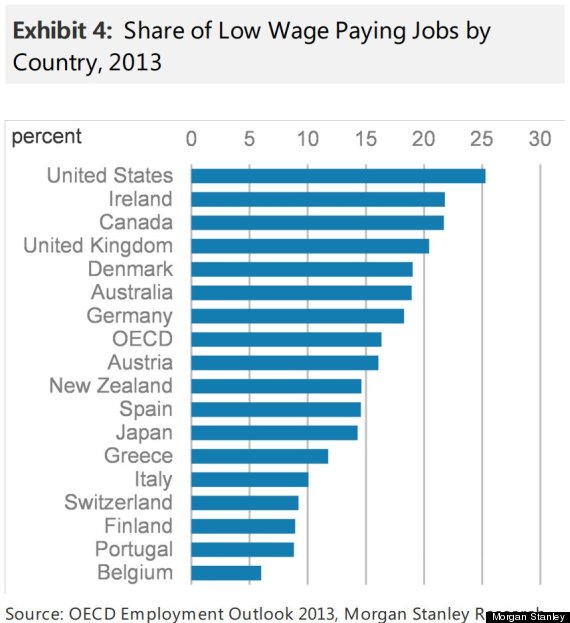The U.S. has more low-paying jobs than any other country in the Organisation for Economic Co-operation and Development, an economic group of 34 developed countries, according to a research note released by Morgan Stanley on Monday.
Economists Ellen Zentner and Paula Campbell based their analysis on the OECD Economic Outlook Report, which documents employment and labor trends in each member nation.
The OECD defines "low-paying" as jobs that earn less than two-thirds of a country's median income. On average, around 16 percent of jobs in OECD countries are considered low-paying. In the U.S., over 25 percent of all jobs qualify as such.
See the chart below, from Morgan Stanley:

The ranking reflects America's problem with income equality. Even though the U.S. has one of the highest household median incomes in the world (about $44,000 compared to roughly $10,000 worldwide), there's a wide gulf between those making much more than the median income and those making much less.
According to the Morgan Stanley economists, income inequality is stifling U.S. economic growth because low-income Americans aren't able to spend enough to boost the greater economy. Wages will need to rise so that households can buy more things.
"Stronger growth in wages and salaries is essential," wrote Zentner and Campbell. "It would help households spend more broadly across the income spectrum."
The OECD recommends that all its members have a "sensible" minimum wage, increase progressive taxation and "scale up" in-work benefits to address income inequality.
Original Article
Source: huffingtonpost.com/
Author: The Huffington Post | By Kevin Short
No comments:
Post a Comment